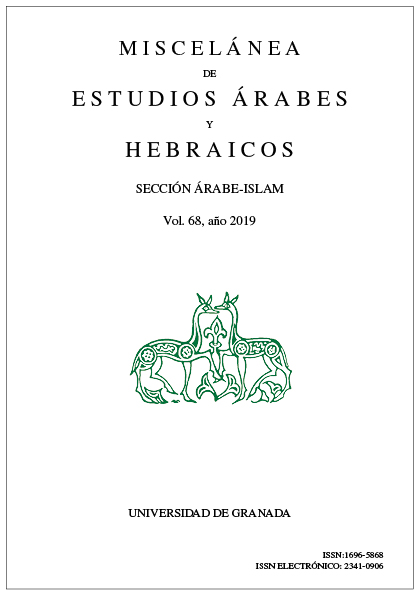Memoricide in Radwa Ashur's Granada
DOI:
https://doi.org/10.30827/meaharabe.v68i0.1006Keywords:
Memoricide, Engagement, Moorish, Radwa Ashur, PalestineAbstract
This article addresses the concept of memoricide in the Granada trilogy by the Egyptian novelist Radwa Āshur. In these pages the different phases of the memoricide perpetrated against the Moriscos in the Spain of the 15th, 16th and 17th centuries is analyzed and correlated with the story of the characters in the novels. The article then shows how the author extrapolates that memory to the present-day Arab context, specifically the Palestinian case. The methodology used is comparative, since the aim of the study is to demonstrate that the trilogy by Radwa Ashur is a correlate of Palestinian history and that it is based on the subaltern subject. For this reason, in all the phases of the Moorish memoricide the echo of the Palestinian memoricide can be perceived. This memoricide also entails an ethnocide, as well as a transculturization that, in Palestine, is still being perpetrated. While in the case of the Moriscos historians unanimously recognize what happened, in the case of Palestine they do not. However, there is sufficient evidence to change this historical perspective, to which authors such Ilan Pappé can testify. Radwa Ashur's trilogy is a political work that denounces the Arab present by using the past as a mirror to reflect current injustices.
Downloads
Downloads
Published
How to Cite
Issue
Section
License
The authors publishing their work in this journal agree to the following terms and conditions:
1. The authors retain the copyright and give the journal the right to be the first publication of the work and also to be licensee under a Creative Commons Attribution License which allows others to share the work, provided the author of the work and the initial publication in this journal are acknowledged.
2. Authors may make additional agreements separately for the non-exclusive distribution of the version of the work published in the journal (for example, putting it in an institutional repository or publishing it in a book), with acknowledgement of its initial publication in this journal.
3. Authors are allowed and encouraged to electronically disseminate (for example, in institutional repositories or on their own web page) the published version of their works (publisher's post-print version) or, if not possible, the author's reviewed and accepted post-print version. This is to facilitate productive exchanges, and allow for earlier and greater citation by third parties of the published works (See The Effect of Open Access).
4. The journal accepts no responsibility for the opinions expressed by the authors.















